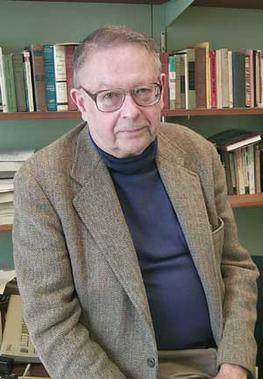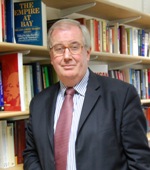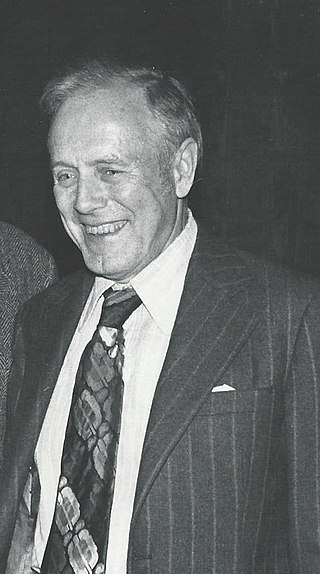Superpower describes a state or supranational union that holds a dominant position characterized by the ability to exert influence or project power on a global scale. This is done through the combined means of economic, military, technological, political, and cultural strength as well as diplomatic and soft power influence. Traditionally, superpowers are preeminent among the great powers. While a great power state is capable of exerting its influence globally, superpowers are states so influential that no significant action can be taken by the global community without first considering the positions of the superpowers on the issue.
International relations theory is the study of international relations (IR) from a theoretical perspective. It seeks to explain constitutive effects in international politics. The three most prominent ideological schools of thought are realism, liberalism, and constructivism. As theories, they provide ethnical guidance for policy.
In international relations, power is defined in several different ways. Material definitions of state power emphasize economic and military power. Other definitions of power emphasize the ability to structure and constitute the nature of social relations between actors. Power is an attribute of particular actors in their interactions, as well as a social process that constitutes the social identities and capacities of actors.

A great power is a sovereign state that is recognized as having the ability and expertise to exert its influence on a global scale. Great powers characteristically possess military and economic strength, as well as diplomatic and soft power influence, which may cause middle or small powers to consider the great powers' opinions before taking actions of their own. International relations theorists have posited that great power status can be characterized into power capabilities, spatial aspects, and status dimensions.

Kenneth Neal Waltz was an American political scientist who was a member of the faculty at both the University of California, Berkeley and Columbia University and one of the most prominent scholars in the field of international relations. He was a veteran of both World War II and the Korean War.

Peace and conflict studies is a social science field that identifies and analyzes violent and nonviolent behaviours as well as the structural mechanisms attending conflicts, with a view towards understanding those processes which lead to a more desirable human condition. A variation on this, peace studies (irenology), is an interdisciplinary effort aiming at the prevention, de-escalation, and solution of conflicts by peaceful means, thereby seeking "victory" for all parties involved in the conflict.

Margaret Olwen MacMillan, is a Canadian historian and professor at the University of Oxford. She is former provost of Trinity College, Toronto, and professor of history at the University of Toronto and previously at Ryerson University. MacMillan is an expert on history and international relations.

Michael E. Cox is a British academic and international relations scholar. He is currently Emeritus Professor of International Relations at the London School of Economics (LSE) and Director of LSE IDEAS. He also teaches for the TRIUM Global Executive MBA Program, an alliance of NYU Stern and the London School of Economics and HEC School of Management.

Jack Foust Matlock Jr. is an American former ambassador, career Foreign Service Officer, a teacher, a historian, and a linguist. He was a specialist in Soviet affairs during some of the most tumultuous years of the Cold War, and served as the U.S. Ambassador to the Soviet Union from 1987 to 1991.
Robert John O'Neill, was an Australian historian and academic. He served as the chair of the International Academic Advisory Committee at the United States Studies Centre at the University of Sydney, was director of the International Institute for Strategic Studies, based in London, from 1982 to 1987, and Chichele Professor of the History of War at the University of Oxford from 1987 to 2000.

Geoffrey Kemp is a British-American academic and writer on international relations. He is the Director of Regional Strategic Programs at the Center for the National Interest, and has held posts in academia and in the U.S. Government.

William Thornton Rickert Fox, generally known as William T. R. Fox, was an American foreign policy professor and international relations theoretician at the Columbia University. He is perhaps mostly known as the coiner of the term "superpower" in 1944. He wrote several books about the foreign policy of the United States of America and the United Kingdom. He was a pioneer in establishing international relations, and the systematic study of statecraft and war, as a major academic discipline. National security policy and an examination of civil-military relations were also focuses of his interests and career. He was the founding director of Columbia's Institute of War and Peace Studies and held the position from 1951–1976.
Patrick James, is Professor of International Relations at the University of Southern California in Los Angeles, CA, and Director of the USC Center for International Studies.
Colin S. Gray was a British-American writer on geopolitics and professor of International Relations and Strategic Studies at the University of Reading, where he was the director of the Centre for Strategic Studies. In addition, he was a Senior Associate to the National Institute for Public Policy.

A potential superpower is a state or other polity that is speculated to be—or to have the potential to soon become—a superpower.

Military sociology is a subfield within sociology. It corresponds closely to C. Wright Mills's summons to connect the individual world to broader social structures. Military sociology aims toward the systematic study of the military as a social group rather than as a military organization. This highly specialized sub-discipline examines issues related to service personnel as a distinct group with coerced collective action based on shared interests linked to survival in vocation and combat, with purposes and values that are more defined and narrow than within civil society. Military sociology also concerns civil-military relations and interactions between other groups or governmental agencies.
Sir Adam Roberts is Emeritus Professor of International Relations at the University of Oxford, a senior research fellow in Oxford University's Department of Politics and International Relations, and an emeritus fellow of Balliol College, Oxford.

Beatrice Heuser, is an historian and political scientist. She holds the chair of International Relations at the University of Glasgow.
Steven R. David is Professor of International Relations at Johns Hopkins University. He specializes in international politics and security issues.
The foreign policies of Canada and its predecessor colonies were under British control until the 20th century. This included wars with the United States in 1775-1783 and 1812–1815. Economic ties with the U.S. were always close. Political tensions arose in the 19th century from anti-British feeling in the U.S. in the 1860s. Boundary issues caused diplomatic disputes resolved in the 1840s over the Maine boundary. and early 1900s, in the early 20th century over the Alaska boundary. There is ongoing discussion regarding the Arctic. Relations have been very friendly with the U.S. in the 20th and 21st centuries.










